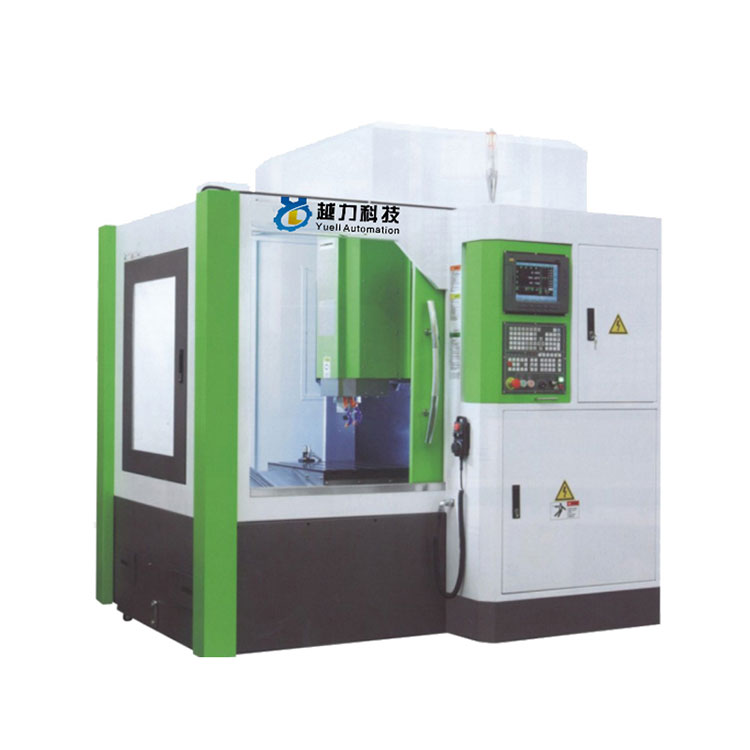The Role of CNC Machining Centers in Modern Manufacturing
2025-02-07
CNC machining centers have revolutionized modern manufacturing by providing high precision, efficiency, and automation. These advanced machines are widely used in industries such as aerospace, automotive, medical, and electronics, where accuracy and consistency are essential. With the ability to perform multiple machining operations in a single setup, CNC machining centers have become the backbone of industrial production.
What is a CNC Machining Center
A CNC machining center is a computer-controlled machine tool that performs various machining processes such as milling, drilling, tapping, and boring with high precision. Unlike conventional manual machines, CNC machining centers use programmed instructions to control cutting tools, allowing for automated and repeatable production. These machines significantly reduce human intervention and ensure consistent quality in manufacturing.
There are different types of CNC machining centers, including:
- Vertical Machining Centers (VMC): The spindle is oriented vertically, making it suitable for operations that require downward cutting forces, such as face milling and drilling.
- Horizontal Machining Centers (HMC): The spindle is positioned horizontally, which allows for better chip evacuation and is ideal for deep cavity machining.
- 5-Axis Machining Centers: These machines offer enhanced flexibility by allowing movement along five different axes, enabling the machining of complex and intricate parts in a single setup.
Key Advantages of CNC Machining Centers
1. High Precision and Accuracy
CNC machining centers are designed to produce parts with extremely tight tolerances, often within microns. This level of precision is crucial for industries like aerospace and medical device manufacturing, where even the slightest deviation can lead to failure.
2. Increased Efficiency and Productivity
With automatic tool changers and advanced programming capabilities, CNC machining centers can perform multiple operations without manual intervention. This leads to faster production cycles and reduced downtime, making them ideal for mass production.
3. Versatility in Machining Operations
CNC machining centers can handle a wide range of materials, including metals, plastics, composites, and ceramics. They can perform various operations such as milling, drilling, tapping, contouring, and engraving, making them highly versatile for different applications.
4. Reduced Labor Costs
Since CNC machining centers are automated, they require fewer operators compared to traditional machining methods. This reduces labor costs while maintaining high production output and consistency.
5. Improved Safety
With enclosed workspaces and automated cutting processes, CNC machining centers enhance workplace safety by reducing human exposure to sharp tools and moving parts. Advanced sensors and software also help in preventing machine collisions and tool breakage.
6. Seamless Integration with CAD and CAM Software
Modern CNC machining centers integrate with CAD (Computer-Aided Design) and CAM (Computer-Aided Manufacturing) software, allowing manufacturers to design complex parts digitally and convert them into machine-readable code. This streamlines the manufacturing process and ensures greater accuracy.
Applications of CNC Machining Centers
CNC machining centers are widely used across various industries due to their high efficiency and precision. Some common applications include:
1. Aerospace Industry
Aircraft components require extremely tight tolerances and lightweight materials. CNC machining centers are used to manufacture engine components, turbine blades, brackets, and structural parts with high precision.
2. Automotive Industry
In the automotive sector, CNC machining centers produce engine blocks, transmission parts, brake components, and custom prototypes. Their ability to work with a variety of metals and composites ensures optimal performance and durability.
3. Medical Industry
Medical devices and implants require exceptional precision. CNC machining centers manufacture surgical instruments, prosthetic implants, dental tools, and orthopedic components with biocompatible materials such as titanium and stainless steel.
4. Electronics Industry
CNC machining centers are used to produce heat sinks, circuit board housings, connectors, and enclosures with fine details and tight tolerances, ensuring efficient thermal management and durability.
5. Tool and Die Industry
CNC machining centers are essential in producing molds, dies, and custom tools used in various manufacturing processes such as injection molding and stamping. Their precision ensures high-quality end products.
Choosing the Right CNC Machining Center
Selecting the right CNC machining center depends on several factors, including:
- Material Requirements: Consider the types of materials being machined, as different models have varying capabilities for cutting metals, plastics, and composites.
- Production Volume: For high-volume production, machines with automatic tool changers (ATC) and multi-axis capabilities are preferred.
- Complexity of Parts: If producing intricate parts with multiple features, a 5-axis machining center may be necessary.
- Workspace Size: The available floor space and machine footprint should be considered when choosing between a vertical or horizontal machining center.
- Budget and Cost Efficiency: While CNC machining centers offer long-term savings, initial investment costs can be high. Evaluating machine features against production needs helps in making an informed decision.
Maintenance and Best Practices
To ensure optimal performance and longevity of CNC machining centers, regular maintenance is essential. Key practices include:
- Lubrication and Cleaning: Proper lubrication reduces friction and extends tool life, while cleaning prevents debris buildup.
- Tool Inspection and Replacement: Worn-out tools can affect precision and surface finish. Regular inspection ensures high-quality machining.
- Software and Firmware Updates: Keeping the machine's software updated ensures compatibility with new manufacturing processes and enhances performance.
- Machine Calibration: Periodic calibration helps maintain accuracy and alignment of components.
Conclusion
CNC machining centers have transformed modern manufacturing by offering precision, efficiency, and automation. Their ability to perform complex machining tasks with minimal human intervention makes them an essential tool across various industries. As technology continues to evolve, CNC machining centers will play an even greater role in shaping the future of production, allowing for greater customization, improved efficiency, and enhanced product quality. Whether in aerospace, automotive, medical, or electronics industries, CNC machining centers remain the key to precision manufacturing and industrial innovation.



